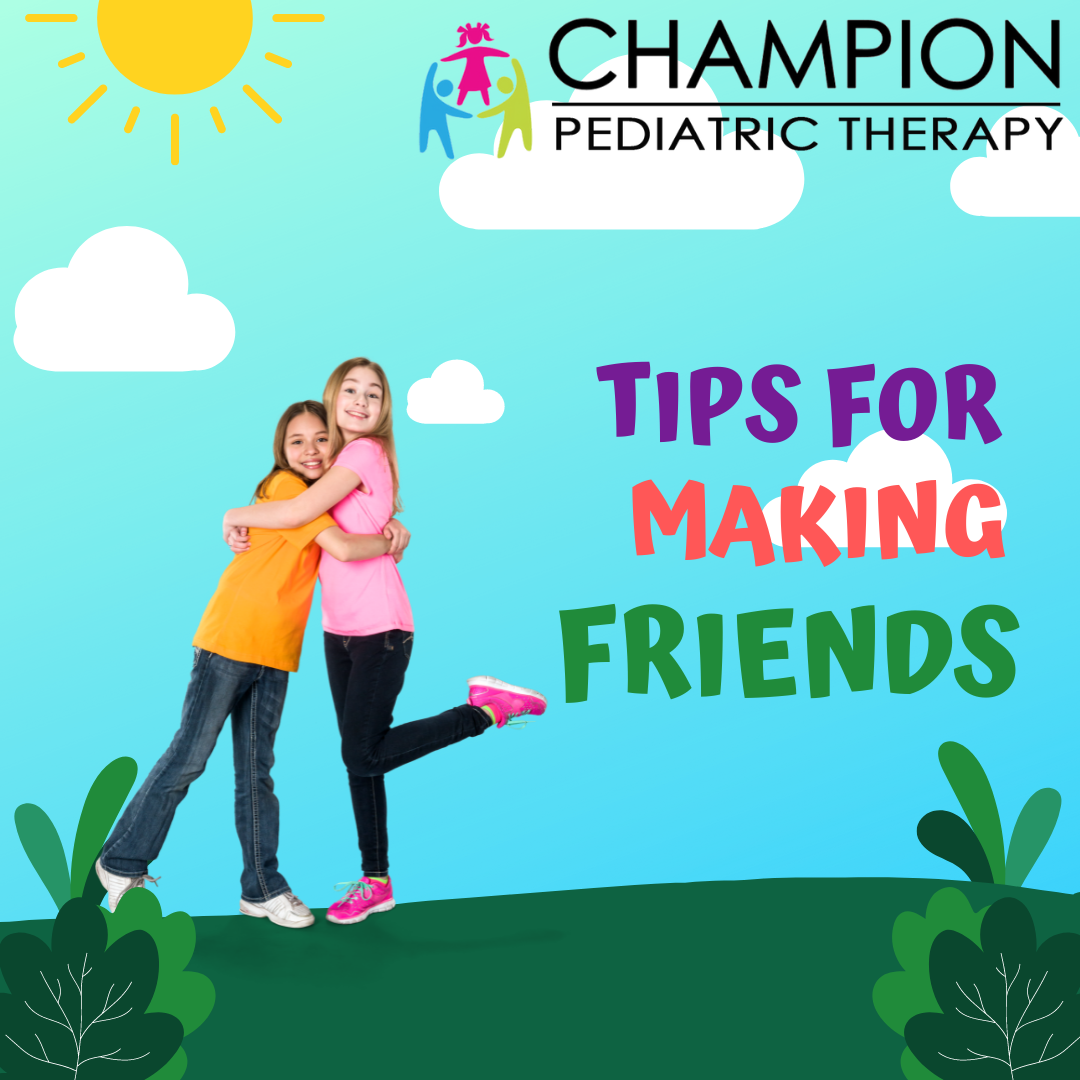As a child attempting to make friends, this can oftentimes be very challenging for some, more so for children with special needs. In addition, parents may see it as challenge for themselves as well, because we naturally want the best for our kids as we are always looking out for them. We want them to be able to experience what it’s like to build a relationship and friendships with other kids. Friendships make life more fun! Not to mention the importance of social-emotional skills that are created when building friendships.
It’s natural that as parents we want to slow down time from our kids growing up too fast, overprotecting them and at times holding them back from exploring the outside world. We can shift that and help our little ones open new beginnings through the skills they do have.
Tips that can help your little one build new friendships:
1. Help them get confident: Provide comfort to your child and let them know that the abilities they have should not set them apart, that there are also other kids who share the same abilities as them. In addition, they may possess natural talents that others may not. Talk with them about the importance and unique qualities of things that they are naturally really great at. Encouraging them, reminding them they are awesome and participating in fun activities with them can help them increase their confidence.
2. Be encouraging!: Ask them what is it that they're interested in. Register your kids in some activities of their interest and let them participate extracurricular activities that can help them strengthen their social skills, as well as other skills that they might need to improve on. Helping them participate in extracurricular activities of their choosing will naturally give them an extra boost of confidence and sense of accomplishment.
3. Boost their confidence: Help your little one feel comfortable when trying to make friends, provide them with guidance on how to hold a conversation. A fun way to help your little one would be a role-playing game. Ask them what they want to be when they grow up and take turns asking questions about the profession. Play games that encourage friendly competition and reciprocal play so they can gain exposure and awareness of different social situations they may arise with their friends, as well as learning how to deal with them.
4. Plan play dates, make building friendships FUN!: No one knows your child better than you. Build an environment you know they will enjoy and interact in. Invite some of your child’s peers/family and plan activities that will help them improve some of their social skills. Allow them to be kids and put the focus on all of their abilities and things they are doing well or are naturally good at. Remind them that everyone has their own strengths and challenges. As we work and play together, we learn from each other and help each other out in unique ways.
5. Make eye contact to show interest: Make sure to make eye contact with your little one when he/she is talking to you so they can build confidence and know that they are receiving your full attention. We are all busy - take time to talk with your child, show interest in what they learned at school, etc. As they build confidence with you, they will feel more comfortable when interacting with other kids. Note: One fun way to practice eye contact would be having a staring contest, try to maintain a fun conversation with your child whoever looks away first or blinks has to make a challenging movement or silly face.
Making friends can be challenging for some… help your child boost their confidence and social skills with these simple strategies! Don’t forget to be an example for them as you socialize with peers and family members… after all, they look up to you and are watching! Also, talk with your child’s therapist and ask for additional strategies to implement after you’ve tried these!

